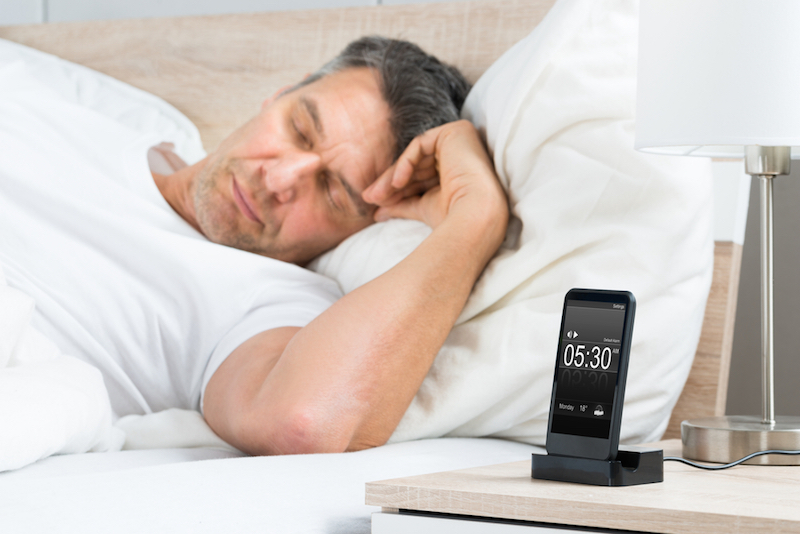Modern Hunter-Gatherers Probably Get Less Sleep Than You Do

Although it might seem that the glowing lights from smartphones and other trappings of modern life reduce people's ability to get a decent amount of shut-eye, scientists now suggest that people do not get any less sleep today than they did in prehistoric times.
The researchers looked at people living in three hunter-gatherer societies in rural parts of Africa and South America. Investigations showed that these traditional peoples slept slightly less than 6.5 hours a night on average. In comparison, people in industrial societies usually average seven to eight hours per night.
"We find that contrary to much conventional wisdom, it is very likely that we do not sleep less than our distant ancestors," said the study's senior author, Jerome Siegel, a sleep researcher at the University of California, Los Angeles.
However, the researchers also found that insomnia may have been more rare in ancient times than it is now. This finding suggests that looking to the past could lead to new ways of treating insomnia, which afflicts more than 20 percent of people in the United States at some point during their lives, the investigators added.
People complain that modern life allows us less sleep than is natural, and earlier studies done on animals in captivity gave the researchers an idea for studying sleep in people, Siegel said. "While trying to record sleep in wild African elephants, and finding that their sleep was very different from zoo elephants, I thought that what we really needed to do was compare sleep in humans living in the regions and under the conditions in which we evolved with sleep in our society," Siegel said. [5 Things You Must Know About Sleep]
To learn more about how people slept before the modern era, the researchers analyzed the sleeping habits of 94 members of three hunter-gatherer societies: the Hadza of Tanzania, the San of Namibia and the Tsimane of Bolivia. These people live much as their ancestors did for thousands of years, so the scientists reasoned that these people's sleep habits reflect prehistoric human behavior.
The research proved difficult at times, Siegel said. "The challenging parts were getting stuck in water or sand in four-wheel-drive vehicles while trying to get to the villages we studied," he told Live Science.
Get the world’s most fascinating discoveries delivered straight to your inbox.
Still, "getting to know the San was a transformative experience," Siegel said. "To see how much is possible without any of the trappings of civilization. To see how smart and happy they are, and also how they must struggle to survive."
After collecting 1,165 days' worth of data on these hunter-gatherers, the scientists found a surprising similarity across the three groups. Despite differences in their genetics, histories and environments, all three groups had similar sleep patterns, which the researchers suggested mirrored those of humans before the modern era.
"I feel a lot less insecure about my own sleep habits after having found the trends we see here," study lead author Gandhi Yetish at the University of New Mexico said in a statement.
For example, none of these groups went to sleep as soon as it got dark, much like industrial people do. Instead, the hunter-gatherers began to sleep a little more than 3 hours after sunset, on average. Nighttime activities included preparing food, eating dinner, making arrows and planning for the next day, Siegel said.
The people usually awoke before sunrise.
Previous research has found that in modern times, many people get sleepy in the midafternoon, leading to speculation that humans naturally want to nap during this time, and that the modern lifestyle suppresses this urge. However, Siegel and his colleagues found that the hunter-gatherers they examined only rarely took naps.
However, the scientists uncovered one big difference between these groups and people who live in industrial societies: Only 1.5 to 2.5 percent of the hunter-gatherers the researchers studied experienced insomnia more than once a year. In comparison, 10 to 30 percent of people in industrial societies report chronic insomnia, the scientists noted. Insomnia was so rare among the San and the Tsimane, they do not have a word for the disorder.
The scientists found that the amount of sleep these hunter-gatherers got had less to do with the length of daylight hours than with temperature. These groups sleep an hour more in the winter than they do in the summer.
"In natural conditions, humans sleep [more] during a period of declining temperature," Siegel said. "In contrast, in most modern settings, while we may turn the temperature down at night, it is not declining."
In other words, modern life has "almost completely eliminated a major sleep regulator," he said.
The researchers suggested that mimicking aspects of the natural environment, such as temperature, could help treat people with insomnia and other sleep disorders.
"Future work is necessary, but our data suggests that environmental manipulation may more effectively control sleep than any drug," Siegel said. "We see a 1-hour difference in sleep duration between summer and winter, whereas chronic use of sleeping pills adds at most 15 minutes to sleep time."
The scientists detailed their findings online today (Oct. 15) in the journal Current Biology.
Follow Live Science @livescience, Facebook & Google+. Original article on Live Science.

